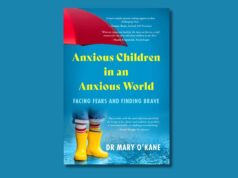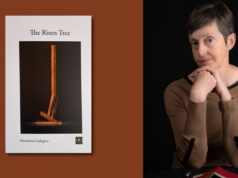
Síne Quinn picks out her favourites among recently published young adult books
The Wickerlight. Mary Watson. Bloomsbury; 428pp; £7.99 pb; 19cm; 978-1-4088-8491-1.
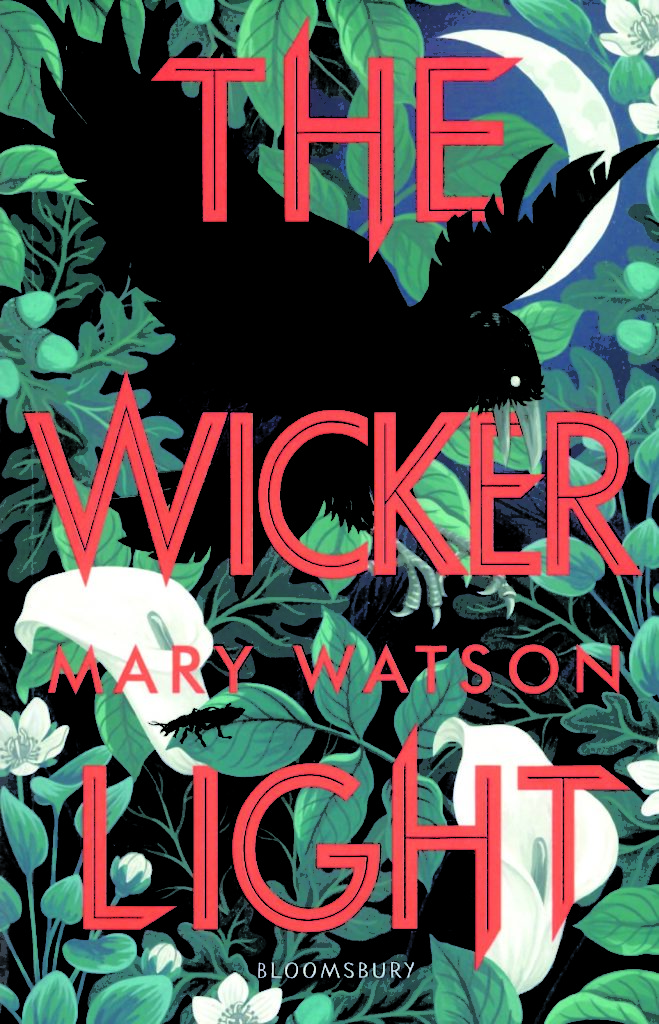
After Watson’s magical début The Wren Hunt comes another otherworldly story in contemporary Ireland. Though a sequel to The Wren Hunt, The Wickerlight works as a standalone novel, but new readers will want to read both tales of an age-old magical battle.
Kilshamble appears to be a quiet, picturesque town where Zara’s family move, hoping for a new beginning. Zara discovers that their internal battles are echoed on a greater scale in the town’s feud between augurs and gairdín (judges). After the tragic, unexplained death of her sister, Zara searches for answers only to discover ancient wars. All the villagers seem on the edge of violence, waiting to erupt. When she discovers a hairball, her sister’s shrine and an unusual eye, Zara knows that magic rituals led to Laila’s death, not drugs. She realises that her sister, in trying to escape mundane village life, had stumbled upon something life-threatening.
The story is told through Zara and David’s alternating viewpoints. Extracts from Laila’s notes allow her story to unfold beyond the grave. So three voices tell the story, all different but intriguing. Zara finds David compelling but is weary of him. He is drawn to her, describing her presence as being like magic.
It is wonderful to see so many Irish
words used (there is a glossary) and ancient folklore interwoven into this
tale. Though, at times, there is so much going on and so many elements and characters
that the reader might get confused. Some of the facts are held back a little too
long for the reader to feel that they are making headway, although this might
be a clever narrative device to highlight Zara’s growing frustration. Some of
the descriptions of torture are gruesome, but, ultimately, Watson’s writing is striking.
The Weight of a Thousand Feathers. Brian Conaghan. Bloomsbury; 368pp; £10.99 pb; 21cm; 978-1-40888-912-1.
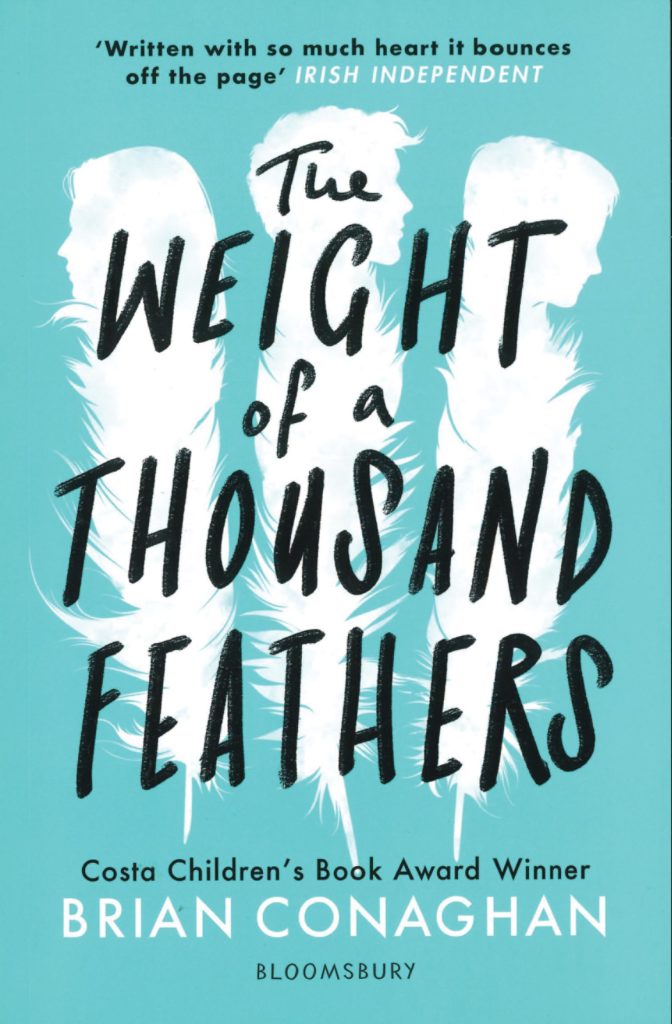
This is an important, thought-provoking novel that addresses many issues that young carers face today. Seventeen-year-old Bobby cares for his mother and his younger brother, Danny. He is a carer of physical needs (his mother’s MS) and emotional (his brother is possibly on the autism spectrum).
In typical impressive Conaghan fashion, his writing is humane, heart-wrenching and full of humour. Bobby, reflecting on the stages of his mother’s illness, knows that the trajectory will not be positive. He describes the grief that accompanies the realisation of the eventual result. ‘I wanted her to take the piss out of me, embarrass me, put me in my place with the slice of a sentence. But that day I understood, a good two years after those pins and needles started nipping away, that I’d be getting a new mum, a totally different one. And my heart was broken. Torn to shreds in fucking Asda.’
Conaghan’s characters are realistic and human, with genuine feelings and foibles. Waves of fear, anger and grief are expressed along with moments of tenderness, while avoiding sentimentality. Though their circumstances are tragic and the brothers devastated, their story is ultimately uplifting and wonderfully observed. You get a real sense of their mother’s personality and her nostalgia for a life without family ties or—more importantly—physical restrictions.
With a band of carers and his best friend Bel’s support, Bobby is able to attend Poztive, a teen-carers’ support group. Descriptions of the meetings are acerbic, droll and very entertaining. Initially reluctant to attend, until a charismatic member catches his eye, Bobby’s heart soars until he has to make a heart-breaking decision.
Other Words for Smoke. Sarah Maria Griffin. Titan Books; 333pp; £8.99 pb; 19cm; 9781789090086.
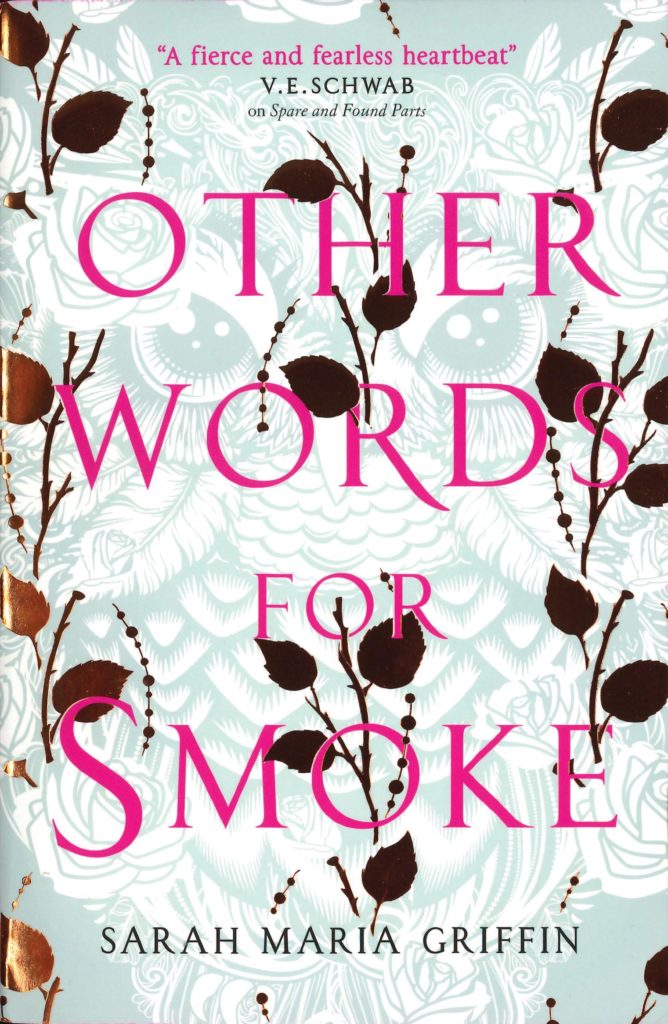
When Griffin’s second novel, Other Words for Smoke, landed on my desk, it was mesmeric both outside and in, from the shocking-pink lettering to the hypnotic owl’s eyes peering out from the cover. Griffin’s note to the reader is even more of a draw, pulling you into an unimaginable, unsettling tale.
The story highlights that strange and magical things occur behind a veneer of normality. When twins Mae and Rossa spend the summer with their grand-aunt Rita their world is transformed. What at first appeared to be an eerie house smelling of burning sage sticks, filled with Virgin Mary statues and a harmless fortune-telling relative becomes deeper, darker and incredible. Told over two summers, when the twins are fourteen and seventeen, and through multiple viewpoints, the siblings discover that the house is a portal into other existences: their pathways of perception are altered forever.
As well as the changes happening within the house, things are unsettled between the siblings. Their stay is meant to offer respite from their parents’ warfare, but proves to be even more of a battle against many forces. The presence of Rita’s gorgeous ward, Bevan, is both enthralling and alarming. Her entrance causes a palpable sensation, creating even more of a schism between them. Griffin’s descriptions of their sexual awakening, longing, lust and fear are highly charged. Bevan is under the control of an owl called Sweet James with a mellifluous voice and a dark intent. She will stop at nothing to satisfy him—even if it means putting the twins’ lives in danger.
Dangerous Games. James Butler. Little Island; 224pp; £7.99 pb; 21cm; 978-1-91041-191-9.
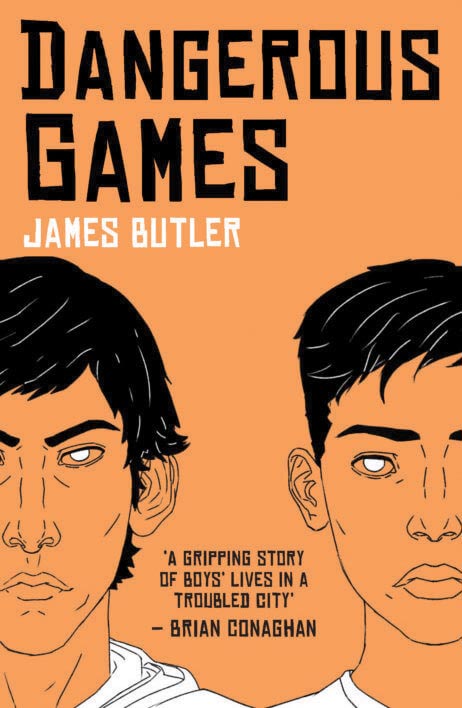
All Kevin wants is to play chess with his best mate Rory and hang out at the community centre. He even teaches his mother how to play. He loves how he can get lost in a game; besides the moves that are crucial to winning or losing, nothing else matters.
He tries to keep out of mischief, but it’s not easy when his older brother Adam is in trouble constantly. Adam and his mates steal a car filled with football gear and files. Kevin and Rory search through the stuff, discovering addresses, cheques, a wallet with a photograph of a boy and his dad.
Still suffering from the loss of his own father, the photograph resonates. ‘The boy looked a bit like me … The man had his arm around the boy like a hug and they were both smiling.’ Kevin pockets the wallet, and the gear, determined to find the boy, Conor, to return their belongings, especially the photograph. But this is not straightforward. Before long he becomes involved in the McCormacks’ world: playing goalie on Conor’s team and spending time in their house. When Conor calls him his ‘guardian angel’, Kevin feels awful. How can he return everything without getting caught? Not only is Kevin struggling to do the right thing, he also has to deal with the aftermath of Adam’s messes.
Dangerous Games is an unsettling and gripping début, addressing many themes important to young adults: agency, maturity, justice and morality. Butler also highlights the different types of patriarchy, masculinity and male bravado, as well as disillusionment with role models and mentors. His uncle Davy’s appearance causes ripples, especially when Kevin discovers that he was in prison. He is shocked but still likes having him around, imagining what it would be like if he were their dad, but Davy’s presence is threatening. Kevin learns that bad decisions and wrong moves occur in life as well as chess.
By Síne Quinn
First Published in Books Ireland Sept/Oct 2019









